 W
WAruna Asaf Ali was an Indian educator, political activist, and publisher. An active participant in the Indian independence movement, she is widely remembered for hoisting the Indian National flag at the Gowalia Tank maidan, Bombay during a Quit India Movement in 1942. Post-independence, she remained active in politics, becoming Delhi's first Mayor.
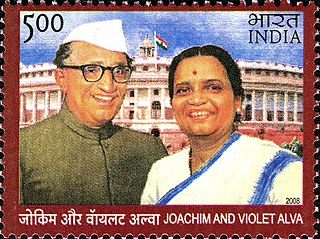 W
WViolet Hari Alva was an Indian lawyer, journalist and politician, and Deputy Chairperson of the Rajya Sabha, and member of the Indian National Congress (INC). She was the first woman lawyer to appear before a High Court in India and the first to preside over the Rajya Sabha.
 W
WJustice P. Janaki Amma (1920–2005), was a former judge of the Kerala High Court. She was the second woman in India to be a judge of a High Court. She served as a judge until 22 April 1982. A lifetime spinster, she died in 2005 after a prolonged illness.
 W
WLalithambika Antharjanam was an Indian author and social reformer best known for her literary works in Malayalam language. She was influenced by Mahatma Gandhi and social reform movements among the Nambuthiri caste led by V. T. Bhattathiripaatu and her writing reflects a sensitivity to the women's role in society, in the family and as an individual. Her published oeuvre consists of nine volumes of short stories, six collections of poems, two books for children, and a novel, Agnisakshi (1976) which won the Kendra Sahitya Akademi Award and Kerala Sahitya Akademi Award in 1977. Her autobiography Aathmakadhakkoru Aamukham is also considered a significant work in Malayalam literature.
 W
WTeji Harivansh Rai Srivastava Bachchan was an Indian social activist, the wife of Hindi poet Harivansh Rai Bachchan and mother of Bollywood actor Amitabh Bachchan.
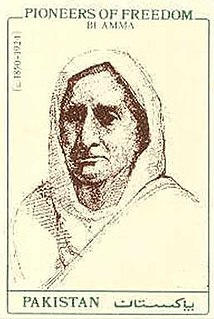 W
WAbadi Bano Begum was a prominent voice in the Indian independence movement. She was also known as Bi Amman. She was one of the first Muslim women to actively take part in politics and was part of the movement to free India from the British Raj.
 W
WKanaklata Barua, also called Birbala and Shaheed (martyr), was an Indian independence activist and AISF leader who was shot dead by the British police while leading a procession bearing the National Flag during the Quit India Movement of 1942.
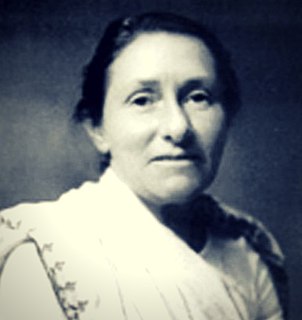 W
WSarala Behn was an English Gandhian social activist whose work in the Kumaon region of Uttarakhand, India helped create awareness about the environmental destruction in the Himalayan forests of the state. She played a key role in the evolution of the Chipko Movement and influenced a number of Gandhian environmentalists in India including Chandi Prasad Bhatt, Bimala behn and Sunderlal Bahuguna. Along with Mirabehn, she is known as one of Mahatma Gandhi's two English daughters. The two women's work in Garhwal and Kumaon, respectively, played a key role in bringing focus on issues of environmental degradation and conservation in independent India.
 W
WAnnie Besant was a British socialist, theosophist, women's rights activist, writer, orator, educationist, and philanthropist. Regarded as a champion of human freedom, she was an ardent supporter of both Irish and Indian self-rule. She was a prolific author with over three hundred books and pamphlets to her credit. As an educationist, her contributions included being one of the founders of the Banaras Hindu University.
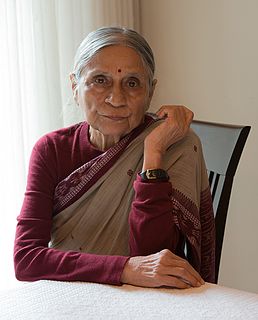 W
WEla Ramesh Bhatt is an Indian cooperative organiser, activist and Gandhian, who found the Self-Employed Women's Association of India (SEWA) in 1972, and served as its general secretary from 1972 to 1996. She is the current Chancellor of the Gujarat Vidyapith. A lawyer by training, Bhatt is a part of the international labour, cooperative, women, and micro-finance movements and has won several national and international awards, including the Ramon Magsaysay Award (1977), Right Livelihood Award (1984) for "helping home-based producers to organise for their welfare and self-respect" and the Padma Bhushan (1986).
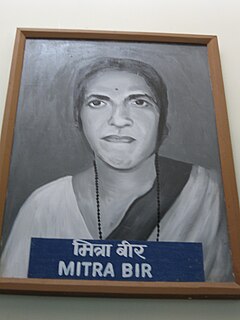 W
WMitra Bir was a freedom fighter and educationist from Goa, who was sentenced to twelve years in jail at the age of 22 when the region was a Portuguese colony. She later opened schools for girls at Margao, Verem, Kakora and other locations in Goa, as well as centres for adult and vocational education for women. She was married to the late Madhav R. Bir, a former member of the Goa assembly and Gandhian.
 W
WKiran Bala Bora was a freedom fighter, and social activist from Assam, India. She is known for her participation in the civil disobedience movements of the 1930s and 1940s, which contributed to the independence of India.
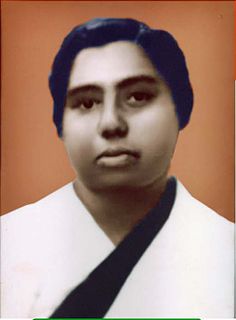 W
WAccamma Cherian was an Indian independence activist from the erstwhile Travancore (Kerala), India. She was popularly known as the Jhansi Rani of Travancore.
 W
WMalati Devi Choudhury was an Indian civil rights and freedom activist and Gandhian. She was born in 1904 in an upper middle class Brahmo family. She was the daughter of Barrister Kumud Nath Sen, whom she had lost when she was only two and a half years old, and Snehalata Sen, who brought her up.
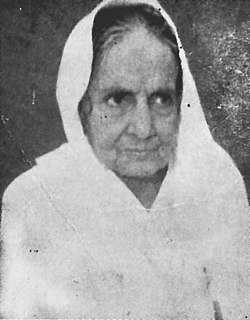 W
WRamadevi Choudhury(Odia: ରମାଦେବୀ ଚୌଧୁରୀ), also known as Rama Devi, was an Indian freedom fighter and a social reformer. She was called Maa (Mother) by the people of Odisha.The Ramadevi Women's University in Bhubaneswar has been named after this great personality.
 W
WKamala Das Gupta was an Indian freedom fighter. She was born in 1907, to a bhadralok Vaidya family of Bikrampur in Dhaka, now in Bangladesh; the family later moved to Calcutta, where she got a Master of Arts degree in history from Bethune College, Calcutta University. Nationalist ideas were current among the young people in Calcutta she met at university, and she was filling with a strong desire to take part in the freedom struggle. She tried to quit her studies and enter Mohandas Karamchand Gandhi’s Sabarmati Ashram, but her parents disapproved. Finishing her education, she became friends with some members of the extremist Jugantar party, and was quickly converted from her original Gandhism to the cult of armed resistance.
 W
WKalpana Datta was an Indian independence movement activist and a member of the armed independence movement led by Surya Sen, which carried out the Chittagong armoury raid in 1930. Later she joined the Communist Party of India and married Puran Chand Joshi, then General Secretary of the Communist Party of India in 1943.
 W
WDurgābāi Deshmukh, Lady Deshmukh was an Indian freedom fighter, lawyer, social worker and politician. She was a member of the Constituent Assembly of India and of the Planning Commission of India.
 W
WGaidinliu was a Naga spiritual and political leader who led a revolt against British rule in India. At the age of 13, she joined the Horaka religious movement of her cousin Haipou Madonang. The movement later turned into a political movement seeking to drive out the British from Manipur and the surrounding Naga areas. Within the Heraka faith, she came to be considered an incarnation of the Goddess Cherachamdinliu. Gaidinliu was arrested in 1932 at the age of 16, and was sentenced to life imprisonment by the British rulers. Jawaharlal Nehru met her at Shillong Jail in 1937, and promised to pursue her release. Nehru gave her the title of "Rani" ("Queen"), and she gained local popularity as Rani Gaidinliu.
 W
WKasturbai "Kasturba" Mohandas Gandhi (listen born Kasturbai Gokuldas Kapadia on was an Indian political activist. She married Mohandas Gandhi in 1883. In association with her husband and son, she was involved in the Indian independence movement in British-ruled India. She was very influenced by her husband Mohandas Karamchand Gandhi, a.k.a. Mahatma Gandhi. National Safe Motherhood Day is observed on April 11 every year. The day also marks the birth anniversary of Kasturba Gandhi.
 W
WLabanya Prabha Ghosh (1897–2003), also called Labanya Devi, a Gandhian, was a prominent personality of the Indian freedom movement, from Purulia District of West Bengal. She lived for almost 106 years and during later part of her life, was forced to live in a poverty-stricken ashram, her only source of income being a pension paid for freedom fighters. All through her life, before and after independence of India, she fought for justice of common man.
 W
WSaraswathi Gora was an Indian social activist who served as leader of the Atheist Centre for many years, campaigning against untouchability and the caste system.
 W
WMatangini Hazra was an Indian revolutionary who participated in the Indian independence movement until she was shot dead by the British Indian police in front of the Tamluk Police Station on 29 September 1942. She was affectionately known as Gandhi buri, Bengali for old lady Gandhi.
 W
WKrishna Nehru Hutheesing was an Indian writer, the youngest sister of Jawaharlal Nehru and Vijaya Lakshmi Pandit, and part of the Nehru-Gandhi family.
 W
WKrishnammal Jagannathan is a social service activist from the Indian state of Tamil Nadu. She and her husband, Sankaralingam Jagannathan, protested against social injustice and they are Gandhian activists. Her work includes upliftment of the landless, and the poor; she has sometimes fought against governments as well as big industries. She was earlier involved in the Indian independence movement, along with her husband, and was also a close associate of Vinoba Bhave. In 2008 she received the Right Livelihood Award, which she shared with her husband. She was given the Padma Bhushan; India's third highest civilian award; in 2020.
 W
WJhalkaribai was a woman soldier who played an important role in the Indian Rebellion of 1857. She served in the women's army of Rani Lakshmibai of Jhansi. She eventually rose to a position of a prominent advisor to the queen, Rani of Jhansi. At the height of the Siege of Jhansi, she disguised herself as the queen and fought on her behalf, on the front, allowing the queen to escape safely out of the fort.
 W
WSubhadra Joshi was a noted Indian freedom activist, politician and parliamentarian from Indian National Congress. She took part in the 1942 Quit India movement, and later remained the president of the Delhi Pradesh Congress Committee (DPCC). She belonged to a well known family in Sialkot. Her father V.N Datta was a police officer with the Jaipur State and a cousin, Krishnan Gopal Datta was an active Congressman in Punjab.
 W
WSheila Kaul was a social democratic leader of the Indian National Congress, a stateswoman, cabinet minister and governor, and the oldest living former member of parliament in India at the time of her death. She was also an educator, social worker, and social reformer in the Indian state of Uttar Pradesh, and an independence activist in British India. She was Jawaharlal Nehru's sister-in-law and Indira Gandhi's maternal aunt.
 W
WGulab Kaur was an Indian freedom fighter. She was born around 1890 and died in 1941.
 W
WSucheta Mazumdar her married name, Sucheta Kripalani, was an Indian freedom fighter and politician. She was India's first woman Chief Minister, serving as the head of the Uttar Pradesh government from 1963 to 1967.
 W
WLakshmibai, the Rani of Jhansi, was the Maharani consort of the Maratha princely state of Jhansi from 1843 to 1853 as the wife of Maharaja Gangadhar Rao. She was one of the leading figures of the Indian Rebellion of 1857 and became a symbol of resistance to the British Raj for Indian nationalists. She died in the Rebellion, wounded and killed in a battle on 18 June 1858. The Rebellion was suppressed by November that year.
 W
WBegum Hazrat Mahal, also known as the Begum of Awadh, was the second wife of Nawab of Awadh Wajid Ali Shah, and the regent of Awadh in 1857-1858. She is known for the leading role she had in the rebellion against the British East India Company during the Indian Rebellion of 1857.
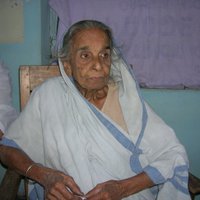 W
WAnnapurna Maharana was an India pro-independence activist active in the Indian independence movement. She was also a prominent social and women's rights activist. Maharana was a close ally of Mohandas Gandhi.
 W
WAnna Mani was an Indian physicist and meteorologist. She retired as the Deputy Director General of the Indian Meteorological Department and further served as a visiting professor at the Raman Research Institute. She made several contributions to the field of meteorological instrumentation, conducted research and published numerous papers on solar radiation, ozone and wind energy measurements.
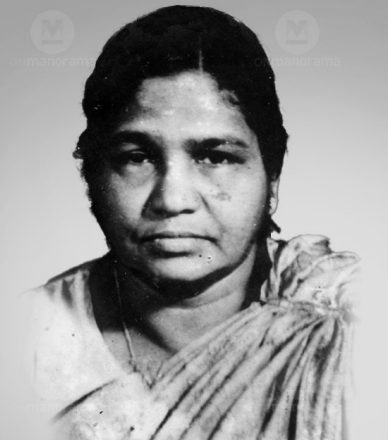 W
WAnnie Mascarene was an Indian independence activist, politician and lawyer from Thiruvananthapuram, Kerala who served as a Member of the Parliament of India and was the first woman to do so. She was also the first woman minister in Kerala.
 W
WHansa Jivraj Mehta was a reformist, social activist, educator, independence activist, feminist and writer from India.
 W
WPravina Mehta of Mumbai was a leading Indian architect, planner and also a political activist. During the Indian independence movement, she was inspired by Sarojini Naidu, a freedom fighter and participated in the street protests against the British Raj before she started her study of architecture at the Sir J. J. College of Architecture. She was involved in the conceptualization and proposal of the New Bombay plan in 1964 in collaboration with Charles Correa and Shirish Patel, which involved extension of the island city located to the east on the mainland. This plan was published in MARG, a Bombay journal of art and architecture. She, along with Minnette De Silva and Yasmeen Lari, was also actively involved in upliftment of people living in slums and in the rehabilitation of earthquake-affected people by developing low-cost housing, combined with environmental aspects and urban planning.
 W
WUsha Mehta was a Gandhian and freedom fighter of India. She is also remembered for organizing the Congress Radio, also called the Secret Congress Radio, an underground radio station, which functioned for few months during the Quit India Movement of 1942. In 1998, the Government of India conferred on her Padma Vibhushan, the second highest civilian award of Republic of India.
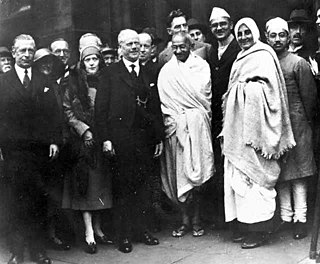 W
WMadeleine Slade P. V., also known as Mirabehn or Meera Behn, was a British supporter of the Indian Independence Movement who in the 1920s left her home in England to live and work with Mohandas Gandhi. She devoted her life to human development and the advancement of Gandhi's principles.
 W
WSarojini Naidu was an Indian political activist and poet. A proponent of civil rights, women's emancipation, and anti-imperialistic ideas, she was an important figure in India's struggle for independence from colonial rule. Naidu's work as a poetess earned her the sobriquet 'the Nightingale of India', or 'Bharat Kokila' by Mahatma Gandhi because of colour, imagery and lyrical quality of her poetry.
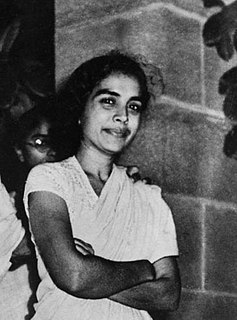 W
WSushila Nayyar, also spelled 'Nayar', was an Indian physician, veteran Gandhian and politician. She played a leading role in several programmes for public health, medical education and social and rural reconstruction in her country. Her brother, Pyarelal Nayyar, was the personal secretary to Mohandas Karamchand Gandhi. She herself acted as Gandhi's personal physician and became an important member of his inner circle. Later, she wrote several books based on her experiences. In post-Independent India, she contested for political office and served as India's health minister.
 W
WRameshwari Nehru was a social worker of India. She worked for the upliftment of the poorer classes and of women. In 1902, she married Brijlal Nehru, a nephew of Motilal Nehru and cousin of the first prime minister of independent India, Jawaharlal Nehru. Her son Braj Kumar Nehru was an Indian civil servant who served as governor of several states.
 W
WIndumati Patankar (Indutai) (1925-2017) was freedom fighter and long-time veteran activist living in rural India in Kasegaon, Maharashtra. Indutai's father Dinkarrao Nikam was in the freedom movement beginning in 1930 and became a Communist when he was in jail for satyagraha and met Communist leaders like Bhai V.D. Chitale. Indutai started reading books such as Volga te Ganga when she was 10–12 years old, took part in morning processions of Congress in the village, supported the families of freedom movement leaders staying at her home in Indoli, tal. Karad. She started going to Rashtra Seva Dal.
 W
WManiben Patel was an Indian independence movement activist and a Member of the Indian parliament. She was the daughter of freedom fighter and post-Independence Indian leader Sardar Vallabhbhai Patel. Educated in Bombay, Patel adopted the teachings of Mahatma Gandhi in 1918, and started working regularly at his ashram in Ahmedabad.
 W
WMithuben Hormusji Petit was one of the pioneer Indian independence female activists who participated in Mahatma Gandhi's Dandi March.
 W
WBhogeshwari Phukanani was an Indian independence movement activist during the British Raj and played a part in the Indian independence struggle.
 W
WPonaka Kanakamma (1892–1963) was a social worker, activist and freedom fighter, imprisoned over a year, as a disciple of Mahatma Gandhi, in India. She founded Sri Kasturidevi Vidyalam, a large school for girls in Nellore.
 W
WShobhana Ranade is an Indian social worker and Gandhian, known for her services towards her cause of destitute women and children. The Government of India honoured her in 2011, with the Padma Bhushan—the third highest civilian award—for her services to the society.
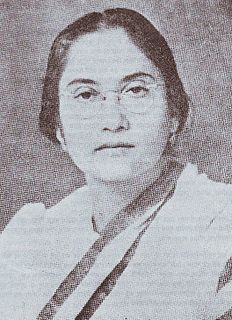 W
WLeela Roy née Nag, was a progressive woman Indian politician and reformer, and a close associate of Netaji Subhash Chandra Bose. She was born in Goalpara, Assam to Girish Chandra Naag, who was a deputy magistrate, and her mother was Kunjalata Naag.
 W
WDuvvuri Subbamma was an Indian independence activist who played an important role in the Indian independence movement. She was one of the founders of the women's congress committee.
 W
WUda Devi was a warrior in the Indian Rebellion of 1857, who fought against the British East India Company.